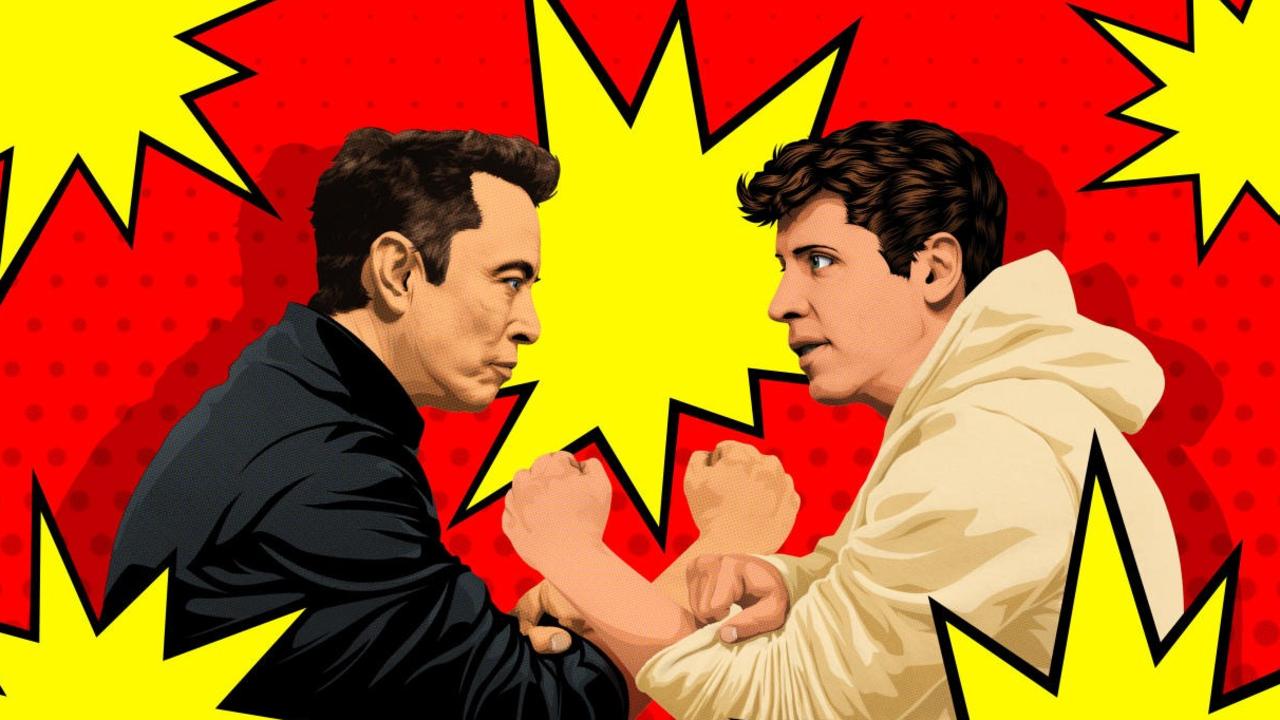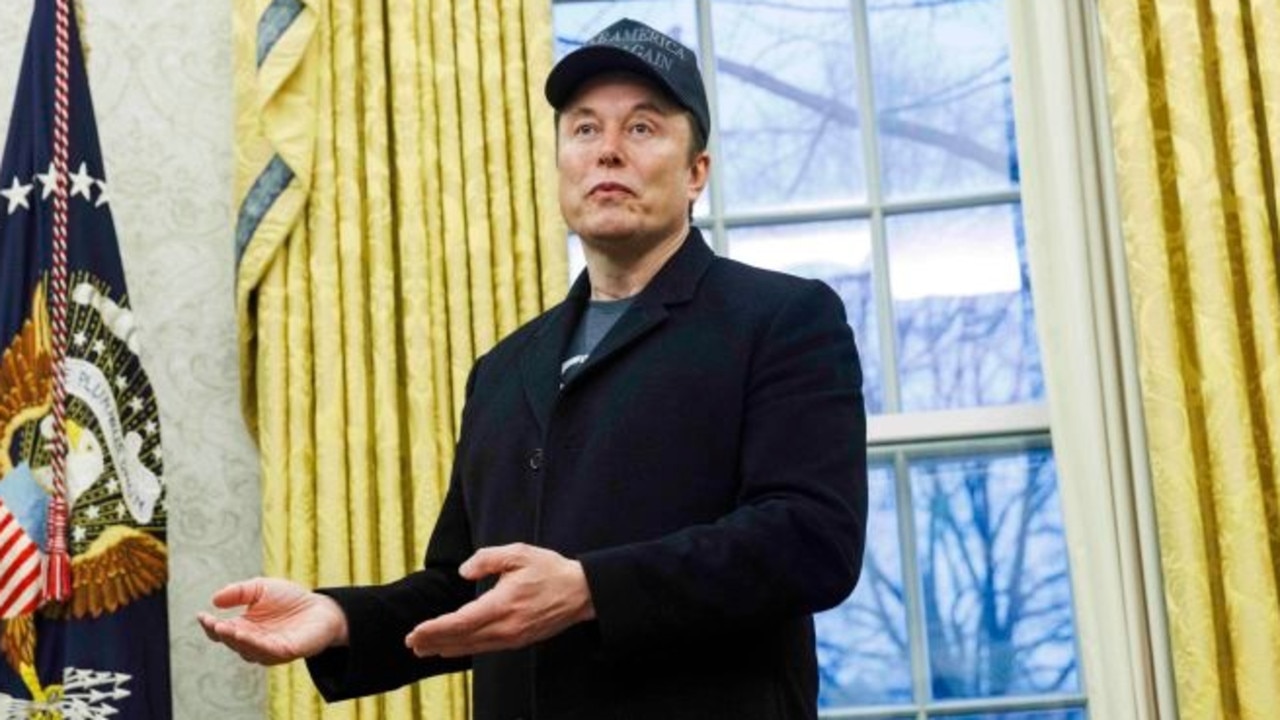ACCC chair Rod Sims rejects Facebook claims on news
The architect of the media bargaining code, Rod Sims, is in wild disagreement with the tech giant about the value of news.
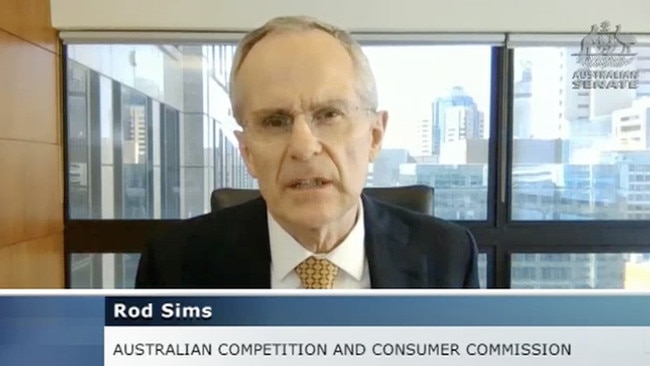
Hello and welcome to The Download, The Australian’s technology blog for the latest tech news. Today, we’ll be live blogging the Senate committee hearing into Australia’s mandatory media bargaining code, which will feature executives from Google and Facebook as well as news publishers.
David Swan 4.45pm: Sims challenges Facebook claims
ACCC Chair Rod Sims has disputed Facebook’s claims that news is a negligible part of its business, declaring that users are more likely to use Facebook if it has news.
Facebook has threatened to block users from sharing news on its platform if Australia if the mandatory media bargaining laws pass. They’re set to go to a vote next month.
“Facebook want people on their platform, they want them to stay on the platform, they‘re more likely to be on the platform and stay on the platform if people can get access to mainstream credited news,” Mr Sims said.
“That doesn’t mean everybody’s interested in that, but clearly enough people are, and the way they get their news is through their Facebook Newsfeed. It’s intersting it’s called Newsfeed.
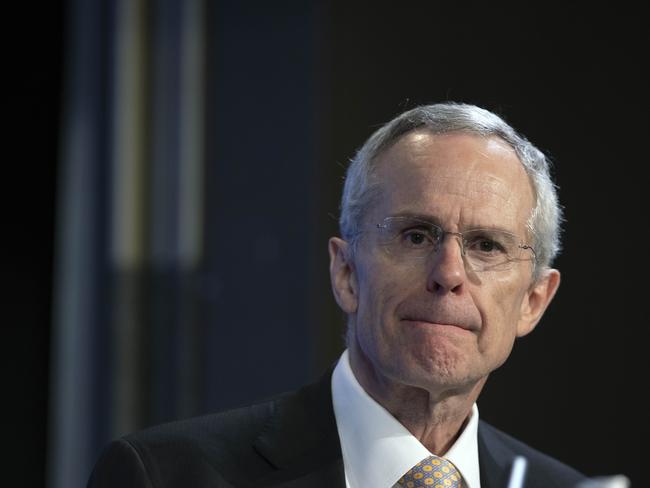
“Of course they get a whole lot of other things through them as well; exchanging things with friends, but there’s no doubt that part of what you get is a feed of news relevant to what you’re interested in... News that’s been provided by journalists that gets more people on the platform.
“[Without news] people would not be on the platform for as long, and they‘d probably go to some other place to get their news.”
And with that, the hearing has now concluded.
David Swan 3.50pm: ‘The media is still waiting’
Labor’s communications spokeswoman Michelle Rowland has criticised the government for allowing debate around the media bargaining code to drag on, and says the delay is costing media companies much-needed revenue.
“Australia’s news media needs fair remuneration for its content, and a workable code is needed to address the imbalance of bargaining power between the media and digital platforms,” she said in a statement.
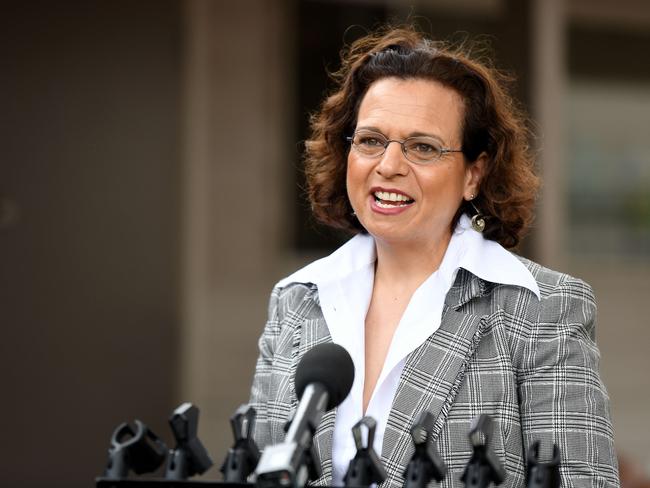
“It is disappointing that the ongoing delay and uncertainty around this code is stifling investment in Australia’s media. The government said they would get it done last year but the media is still waiting.
“It is concerning that the digital platforms say that the code isn’t workable, and they may withdraw Google Search and news on Facebook.
“Josh Frydenberg and Paul Fletcher need to explain why they can’t find a way to support the media without also disrupting the millions of Australians who use Google Search and Facebook every month.”
David Swan 3.30pm: Media bargaining code ‘will not break search’
The architect of the mandatory news bargaining code, Australian Competition and Consumer Commission (ACCC) chair Rod Sims, has rejected repeated claims from Google that the code would ‘break’ search and run counter to how the internet works.
“It is clear... from Google’s recent experiment on Australian consumers, that it has the ability to change its search service as it sees fit,” he says in his opening statement.
“I do not accept the argument that the code will break search or destroy a “free and open Internet” any more than paid search ads destroyed search.
“Importantly also, the code does not require Google and Facebook to pay for linking news content. Indeed, discussions we are aware of have focussed on paying up front lump sum amounts, not per click. Further, they can negotiate and make offers on other terms, including on products like Google Showcase or Facebook News Tab, outside the code or under the code.
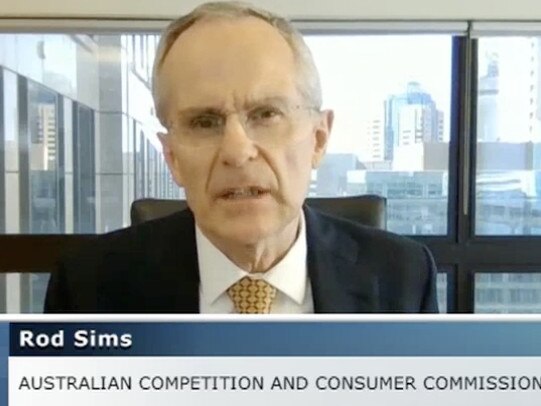
“What the code does is require the digital platforms to negotiate in good faith over paying news businesses for the value that the digital platforms derive from having news content on their platforms, and participate in arbitration if no agreement is reached. The vital point is that it is this requirement that evens up the bargaining power and so allows the commercial deals to be made. Without the code as a back-up commercial deals cannot be made as terms are simply offered on a take-it-or-leave-it basis.
“While we are pleased that Google has developed its Showcase product, it is clear that Showcase likely only exists due to the threat of regulation. We have seen this pattern in countries like France and the United Kingdom, where Google announces initiatives only after the threat of regulation becomes sufficiently serious.
“And in the end, the decision about what Showcase will look like, how it will operate and whether to offer a news business a Showcase deal is entirely up to Google. This is why this product does not address the imbalance in bargaining power that the code is designed to remedy.
“The code is just something Google and Facebook don’t want.”
David Swan 2.40pm: Google has done ‘little to nothing’ on news
Free TV Australia chair Greg Hywood, a former Fairfax executive, has told the inquiry that Google is under increasing pressure globally to properly compensate publishers for news.
“It’s come up with a range of ad hoc proposals, which tend to come to little or nothing,” Hywood tells the committee. “And the experiences of the industry is another one of those ‘little or nothing’ experiences. Fundamentally for the code to work, it has to provide a very substantial material amount of money, that meets the needs of the generators of news and current affairs content.”
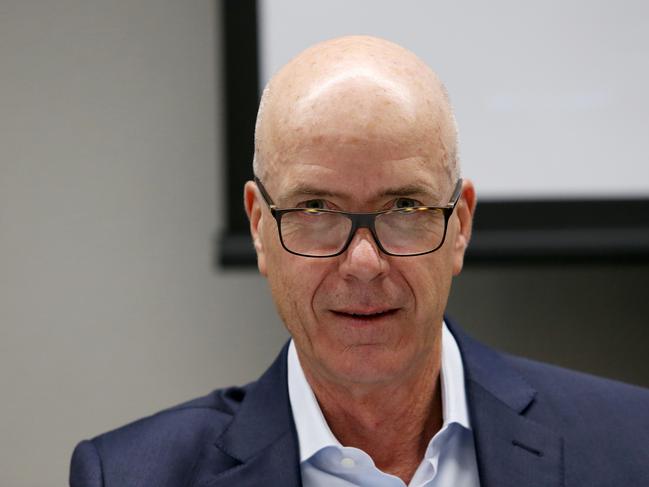
Bridget Fair, the chief executive of Free TV Australia, says there is a massive bargaining imbalance between the tech giants and publishers.
“We don’t have a funcitoning market,” she says. “The Google Showcase is really a red herring.
“What we’re trying to do is have a regulatory framework which is a proxy for a functioning market. And then we can be negotiating in a real way about the range of solutions the platforms wish to offer.”
Chris Griffith 2.20pm: DuckDuckGo search engine on the march
Google isn’t the only show in town in search. The privacy-focussed DuckDuckGo (DDG) search engine this week announced it had surpassed 100 million search queries in a day for the first time on Monday. CEO & founder Gabriel Weinberg in a post said its search engine had been profitable since 2014.
The Philadelphia-based company was formed in 2008, and had a staff of around 116 as at November last year. It claims to use more than 400 sources for delivering search results.
DuckDuckGo is becoming increasingly popular among users who value their privacy, and the search engine is available for use with common browsers, and specialist browsers such as Brave, which has its own built in shielding against browser tracking.
In a post on Quora, Mr Weinberg said the company attained profitability without storing or sharing any personal information on people using its search engine. Instead DuckDuckGo showed keyword-based search ads “though we have always been on the search for other ways to anonymously make money so that we can reduce the dependence on advertising”.
“The only other way we’ve found so far, which currently accounts for a much smaller portion of our revenue, is non-tracking affiliate partnerships with Amazon and eBay,” Weinberg says.
“When you visit those sites through DuckDuckGo, including when using !bangs, and subsequently make a purchase, we receive a small commission.
“This mechanism operates anonymously and there is no personally identifiable information exchanged between us and Amazon or eBay. These partnerships also don‘t affect the ranking of search results. The reason we can do this in an anonymous way with Amazon and eBay, though not with other retailers, is because Amazon and eBay run their own affiliate networks.”
David Swan 2pm: ‘Unfortunate bully behaviour’
Google and Facebook’s threats today are the most significant since the mandatory code was first proposed, according to Monash University Associate Professor Johan Lidberg.
“This is very unfortunate bully behavior by Google and Facebook and typical of corporate actors that have become too powerful and that operate in a close to monopolistic environment. This behaviour clearly illustrates why the code is needed and the need for governments worldwide to rein in the power of the big tech companies,” Lidberg tells The Australian in a statement.
“There are significant imbalances between the earnings of media companies and those of Google and Facebook, which generate huge volumes of advertising around news generated by others. Australian media companies have struggled immensely from a decline in advertising revenue due to COVID-19, with many of our local newspapers, which are the engine rooms of our democracy in our regional areas, shutting altogether. This world-first framework could protect local jobs and fund public interest journalism.
“It is important, now, more than ever before, that Australians have access to trusted news sources that have the resources to provide quality public interest journalism in times of misinformation.”
David Swan 1.30pm: “We haven’t had credible negotiations”
Nine chief digital and publishing officer Chris Janz says his company hasn’t had credible negotiations with Google or Facebook, hitting out at the tech giants’ approach to the looming bargaining code.
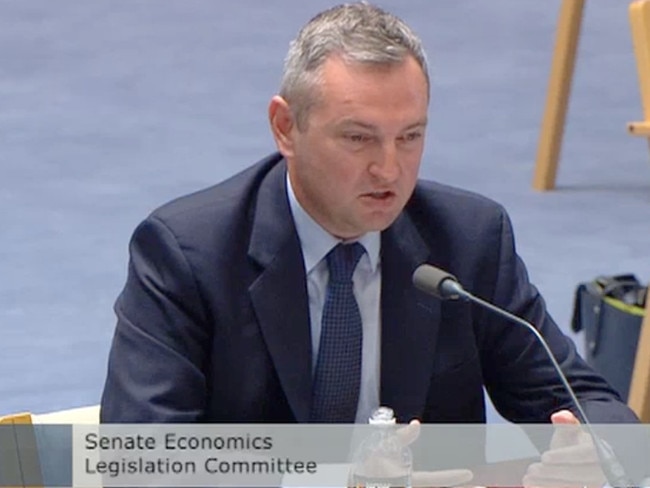
“There have been offers put on the table, but not offers that we could credibly accept or explore, or that achieve the outcome that we require,” he says.
And now for a lunch break.
David Swan 1.30pm: Code would be ‘big boost for journalism’
News Corp executive Campbell Reid says in response to a question from Labor Senator Jenny McAllister that the code’s passage would allow the company, which publishes The Australian, to hire “as many as possible” new journalists in newsrooms across the country.
AAP chief executive Emma Cowdroy says the code would help publishers employ more journalists, including those in regional Australia.
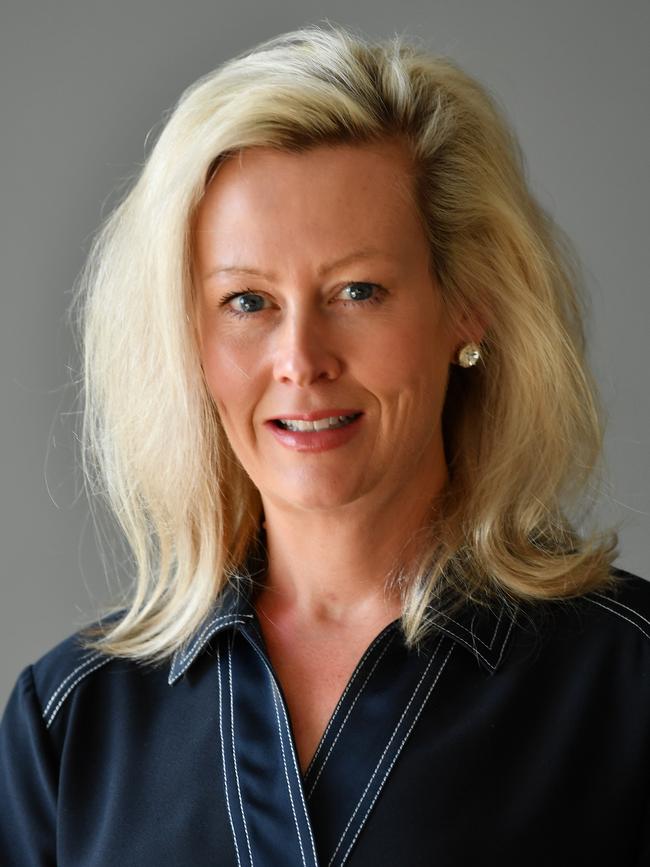
“Our hope would be that by leveling the playing field, we’d be able to invest further in journalism,” Nine executive Chris Janz says.
The Guardian Australia managing director Dan Stinton says his company hasn’t received enough information from the tech giants about how much local journalism is worth, but that the code “would make a material difference” to the number of journalists his publisher could hire in Australia.
The code, if passed, would force the tech giants and news publishers to negotiate on how much outlets should be paid for news.
David Swan 1.05pm: Google has ‘the brain of brat’
Reset Australia, the local arm of a global initiative working to counter digital threats to democracy, has slammed today’s Google committee testimony.
“Today’s egregious threats show Google has the body of behemoth, but the brain of brat,” Chris Cooper, executive director for Reset Australia, told The Australian.
“When a private corporation tries to use its monopoly power to threaten and bully a sovereign nation, it’s a surefire sign that regulation is long overdue.
“Internet search is necessary for society and the economy. Google enjoys the enormous advantage of being a giant in the space, but thinks it can eschew the responsibility. That’s just not how things should work.
“Google runs a service that is enmeshed in the day-to-day running of society. Energy companies, transport companies, logistic enterprises – all are heavily regulated and respect that this is part of their license to operate.
“The Australian government needs to stand firm and set an example for governments around the world. In democracies it is the people who set the rules for corporations, not the other way around.”
In its testimony Google re-iterated its threats to shut down search in Australia.
James Madden 1pm: Media code ‘will benefit all Australians’
News Corp senior executive Campbell Reid tells the hearing that the need for Australian news companies to be adequately compensated by the digital platforms for their use of the publishers’ content was “an urgent problem.”
“The code you are considering can play a vital role in securing the future of real news for all Australians,” he says.
Making reference to attempts by Google and Facebook to water down elements of the proposed law, Mr Reid says: “There may well be opportunities to improve the code, but we can’t allow refinements to undermine its core intention to provide a framework that creates an environment for successful negotiations between media companies and tech platforms.
“We are genuinely open-minded if there are clear opportunities to enhance it but we are staunchly opposed to attempts to undermine it either in spirit or its effectiveness.”
Nine executive Chris Janz says “without strong regulatory intervention, the sustainability of our diverse media sector is at risk”.
Google makes significant commercial returns, “without paying a single cent for the creation of that journalism”, Mr Janz says.
“And if you don’t play ball, Google has shown that they’re not afraid to make you effectively disappear from the internet.”
David Swan 12.20pm: Google ‘an effective monopoly’
Media executives from Nine, AAP, News Corp and The Guardian now supporting the code before the committee.
Nine chief digital and publishing officer Chris Janz has criticised Google’s recent moves to block news for some users in Australia.
“Google’s ability to execute the so-called experiment demonstrates the truth of the core digital media ecosystem, you either play by their rules or not at all,” he said.
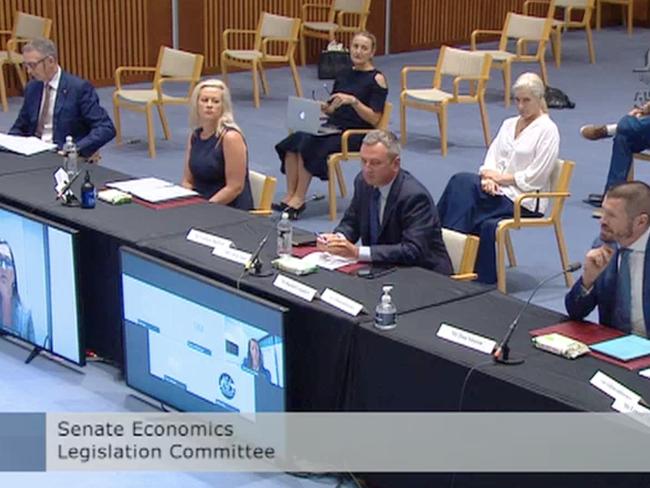
“For media organisations, this means having to accept your content appearing on Google’s platforms, which provides Google with significant commercial returns without paying a single cent for the creation of that journalism.
“And if you don’t play ball … Google has shown they’re not afraid to effectively make you disappear from the internet for the broader community, it shows in very stark terms who controls the information people can access and can manipulate this information, according to its own commercial objectives.
“Given their effective monopoly in search Australians to have little choice but to accept whatever Google decides.”
David Swan 12.20pm: PM gives Google slap down
Prime Minister Scott Morrison has been asked his reaction to Google and Facebook’s threats to shutter search and news sharing respectively.
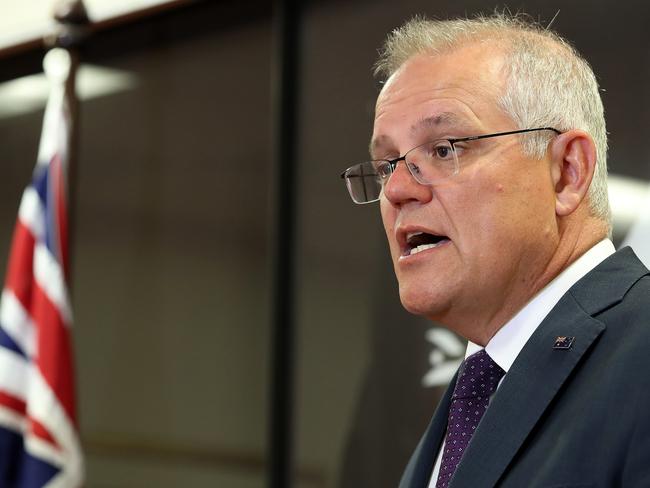
“Australia makes our rules for things you can do in Australia,” he said.
“And people who want to work with that in Australia you’re very welcome. But we don’t respond to threats.”
David Swan 12.15pm: Facebook to block news in Australia
Facebook’s executives have renewed their aggressive threats to block the sharing of news in Australia, detailing that local users would no longer be able to post any news stories, videos or other news-related content to the platform.
“[Users] would be able to have very full use of Facebook but if [they] tried to share something like that because of this law, which creates burdens financial burdens which are unknowable and uncapped, then that’s the small part of Facebook which involves news will no longer be possible,” Facebook executive Simon Milner said.
“It’s not going to be shared because you don’t want to pay for it,” Senator Sarah Hanson-Young retorted.
The company says it derives no commercial value from news in Australia, and that Australian news accounts for less than 5 per cent of an average user's news feed.
David Swan 12.05pm: Facebook removed posts from ‘public figures’
Greens Senator Sarah Hanson-Young is probing Facebook about how it handles misinformation, specifically asking whether the tech giant has removed any posts from government MP Craig Kelly, who has recently been criticised for posting discredited COVID-19 conspiracy theories.
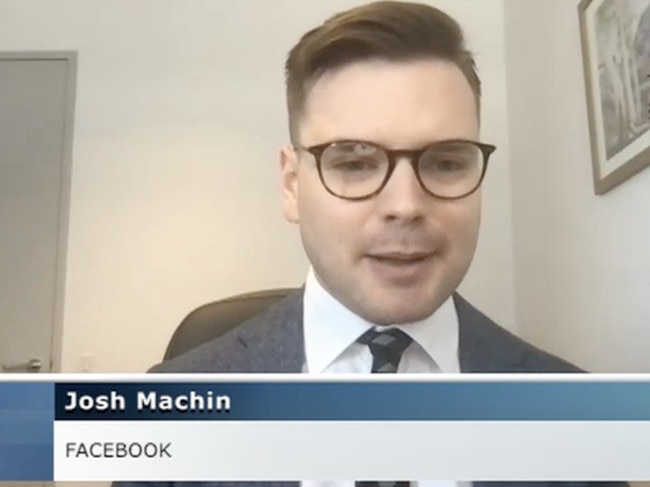
“We apply these standards around misinformation and harm policies consistently across all Facebook users,” Facebook executive Josh Machin says, declining to name Mr Kelly specifically.
“So that includes public figures, and there are posts from public figures.
“I wouldn’t want to reveal the private steps of those particular accounts we have taken … But we have removed posts from public figures within Australia.”
David Swan 11.50am: ‘Verging on being morally bankrupt’
South Australian senator Rex Patrick says Facebook is ‘verging on being morally bankrupt’ for how it handles its taxes.
“Facebook has an arrangement here in Australia, if someone in say Port Lincoln decides to boost an ad, they go online, they boost their ad. They’ll find it they costs $1,000 … And they’ll get an international transaction fee, that is paid in respect of Ireland. So, all of your advertising revenue basically goes directly to Ireland,” Mr Patrick said.
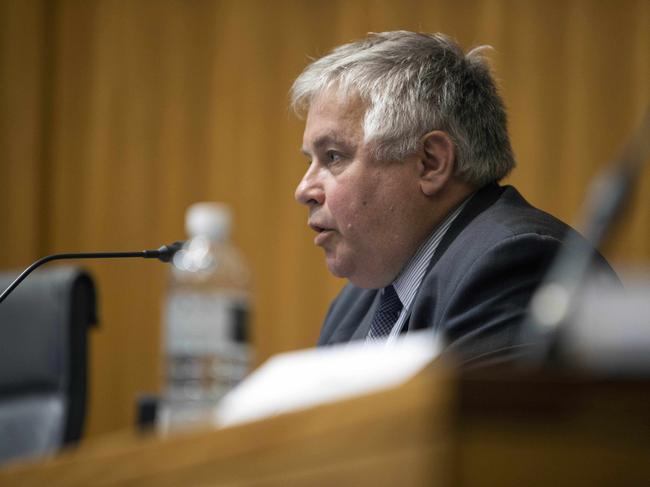
“And even though the customer is here in Australia, and the services being provided in Australia.
“You rely on our education system you rely on police services, our legal system … But you are avoiding paying tax here in Australia. I’m not saying you’re doing anything unlawful, and the OECD is looking at this … But it’s not morally proper is it? It goes to your social licence.”
Mr Milner said Facebook paid about $1.3bn in tax over the last three years.
David Swan 11.40am: Facebook confirms US government talks
Facebook has been in contact with the US government about Australia’s mandatory media bargaining code, the company has confirmed.
Senator Rex Patrick asked Facebook's APAC president for public policy Simon Milner whether any discussions had occurred.
“We have discussed the Australian news bargaining law with the US, in the same way as we discuss all kinds of different types of legislation around the world that affects US headquartered companies,” Mr Milner said. “So we have had those discussions with them. And of course all of our submissions are public, including the one that we’ve given to this committee. So, the US government is able to read this just as anybody else.”
It comes after the US government made a submission to the senate inquiry, calling for the laws to be dropped and declaring that they may violate the Australia-US free trade agreement.
David Swan 11.15am: Facebook hits out at ‘micro-regulation’
Facebook’s APAC president for public policy Simon Milner is now appearing before the committee, along with the company’s local head of public policy Josh Machin. Unlike Google, the company has not sent its local boss, Will Easton, to front the committee.
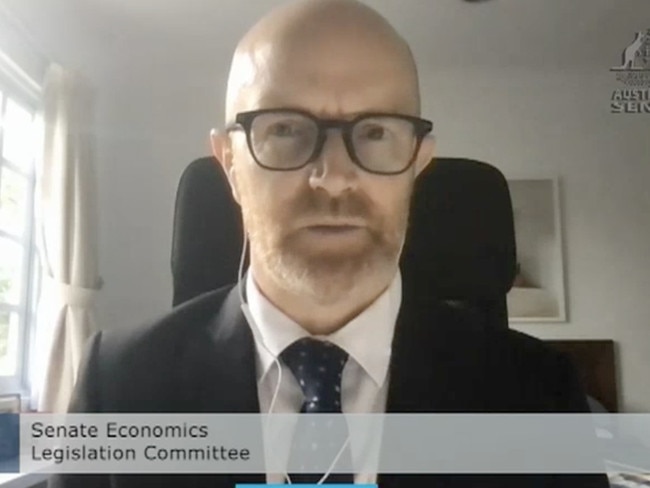
“It’s highly prescriptive micro-regulation that seeks to control almost every interaction Facebook would have with publishers, and it’s accompanied by various types of heavy penalties,” Mr Milner says in his opening statement.
“There is no under law like it in Australia.”
Mr Milner was asked about Facebook’s threats to block the sharing of news if the code becomes law.
“Let me be clear, we have not threatened, we’ve explained, and we think this in order to inform the policy making process that potential worst case consequence of the law,” Mr Milner said.
“It was absolutely not a threat. It was designed to inform the policy process, and we clearly have been doing some work to figure out what would that actually look like.
“The great majority of people who are using Facebook would continue to be able to do so, but we would no longer be able to provide news as part of the Facebook product,” Mr Milner said.
James Madden 11.10am: Google under increasing pressure
Google managing director Melanie Silva has been savaged over her company’s threat to exit the Australian market if the federal government’s mandatory media bargaining become law.
While Ms Silva repeatedly sought to downplay the threat – characterising it as “worst case scenario” – a number of senators suggested such a claim was disingenuous.
Independent senator Rex Patrick accused Google of being primarily concerned about the “commercial precedence, not the technical precedence” of the proposed code. Senator Patrick asked Ms Silva: “Are you going to pull out of every market in the world, are you?”
Senator Sarah Hanson-Young said the possibility that Google might leave Australia if it did not gets its way was “a hell of a threat”, that “didn’t add up with the facts that you have presented this morning”.
Liberal senator Andrew Bragg referenced Google’s stance on the company’s threats as “blackmail”.
David Swan 11.05am: ‘The eyes of the world are watching’
The Centre for Responsible Technology has hit out at Google’s threats to remove Search if it doesn’t get its way.
“Google’s testimony today is part of a pattern of threatening behaviour that is chilling for anyone who values our democracy,” Peter Lewis, director of the Australia Institute’s Centre for Responsible Technology, said in a statement.
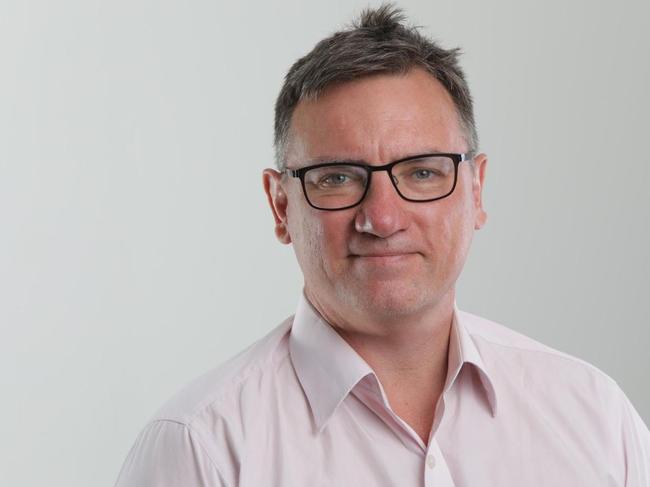
“Our elected representatives must stand firm against this bullying and support a viable media to act as a counterweight to the power of Big Tech: the eyes of the world are watching.
“This follows the secret and cynical experiment on Google users in recent weeks where news has been withdrawn from its services with no forward notice.”
David Swan 11am: ‘People aren't happy about it’
Senator Hanson-Young is now asking Ms Silva about The Australian’s story from this week, which revealed majority of Australians oppose Google‘s “disturbing” news experiments.
The Centre for Responsible Technology surveyed a nationally representative sample of 1003 Australians, finding that four in five respondents said it was “disturbing” that a search engine could remove Australian news from its results.
“I’m interested in what you think Australian users actually how they actually feel about Google’s attitude towards this,” Ms Hanson-Young said. “And there’s been some polling released earlier this week that said, three and four Australians agree that algorithms that search engines should use should be publicly available.
“You have amazing market power, incredible market power in this country, you’ve run an experiment, and people aren’t happy about it. And now you come to the parliament, and you’re trying to say either change all of this, or we will shut everything down.”
“Respectfully, I think that throughout this process, our goal has been to analyse the proposed legislation as it comes to hand, assess the impact on our product, and how that we will be able to comply as well as assess the financial risk. When we do all of those three things, the only rational decision is to withdraw from search, which is the last thing that we want to do,” Ms Silva said in response.
“That’s the situation we find ourselves in and that’s why we are so committed to putting forward alternatives and solutions that we think meets the government’s intentions.”
David Swan 10.50am: ‘Why come here and threaten the Australian people?’
Greens Senator Sarah Hanson-Young is asking Ms Silva why Google is threatening to remove search in Australia, when the tech giant also says news is a negligible part of its business.
“That’s a hell of a threat. And it doesn’t seem to add up with the facts that you’ve presented yourself about the impact that this would have just on news content in Australia. Why come here and threaten the Australian people, cutting off all of their search results, because you haven’t been able to negotiate,” Ms Hanson-Young asked.
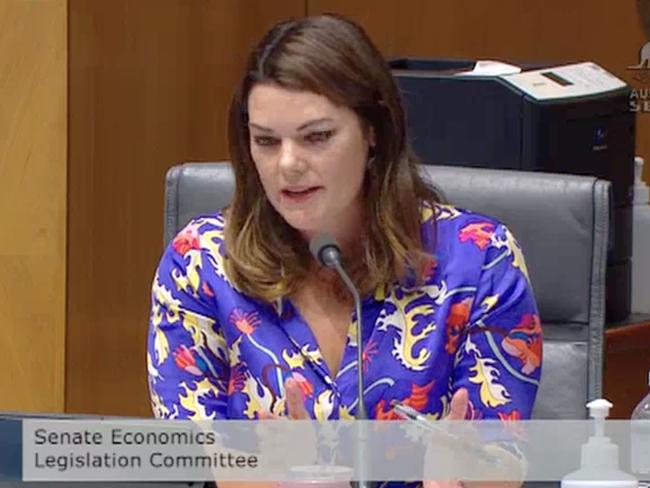
“Our ability to offer the search service to our users is supported by a business model and that’s not something that we have ever denied … Any rational business would look that piece of legislation and evaluate the technical and operational risk, and financial risk associated with it,” Ms Silva said.
“And this inquiry is designed to surface those issues which is why we think we’re focused on a workable solution. And we believe we put one forward, we’re not opposed to a code of conduct, at all.”
David Swan 10.30am: Google defends ‘experiments’
South Australian senator Rex Patrick is taking on Google’s local boss Mel Silva on the company’s recent ‘experiments’ in which it buried news links.
Ms Silva said the experiments were conducted because Google was preparing for a ‘worst case scenario’ in which it would withdraw services from the Australian market.
“We’ve also been planning for how we would operationalise and comply with a workable code, because that is a significant shift in our operations, getting deals done and complying with regulations. All of these we have planned for. There is an area of course where we have in our proposed workable code, the need to understand the value between Google and these publishers, and the experiments were designed to help fill out that scenario.
“And so for us to be able to go into any sort of arbitration that would exist in our workable version of the arbitration process we needed that data. And that insight to prepare.
“Now, I would just also like to highlight that this is a very small experiment that impacted 1 per cent of users for each arm. These are experiments that we run consistently to help make our product better. The purposes of these experiments was to help us prepare for a workable code solution.”
The executive said she wasn’t sure when asked if the experiments included the ABC.
David Swan 10.20am: Google grilled on market share, tax
Liberal senator Andrew Bragg is probing Google on its local market share, and tax obligations.
Ms Silva has said Google accounts for 95 per cent of web searches in Australia, and paid $59 million in tax last year, on $4.3 billion in advertising revenue.
“We comply with the tax laws of the land,” she said. “We’re a reseller, that’s the way that the tax laws have been written, and we comply with the laws of the land when it comes to tax.”
David Swan 10.15am: ‘We’re not opposed to a code’
Google boss Mel Silva says the tech giant is not opposed in theory to a mandatory media bargaining code, but key sticking points include the proposed so-called ‘baseball arbitration’ process, and that Google should not be paying for news that appears in its search results.
“We have a workable solution, Senator, and I think we can get there. We’re not opposed to a code, we’re not opposed to paying publishers, the details matter,” she said.
“We’re working on obviously a number of scenarios … And the hardest financial risk for us is the inability to calculate the outcome from open ended, and one sided arbitrations. The criteria that sits underneath the prescribed arbitration format are very vague and one sided, so for example the costs of publishers’ production is included, not the costs for Google. “It is nigh impossible for us to calculate the risk and exposure that we would be exposed to if the code were to pass in its current form.”
David Swan 10.05am: Google threatens to shut down search
Google’s local boss Mel Silva is first up at the Senate committee hearing, appearing alongside the tech giant’s director of government affairs Lucinda Longroft. She’s making her opening statement.
“The principle of unrestricted linking between websites is fundamental to search, and coupled with the unmanageable financial and operational risk, if this version of the code were to become law, it would give us no real choice but to stop making Google Search available in Australia,” she says.
Chris Griffith 9.55am: Facebook reviews Trump suspension
Facebook says it will review whether to extend former President Donald Trump’s suspension on its platform and Instagram.
It won’t be conducting the review internally. The decision will be made by the company’s independent review panel and Facebook says the decision is binding.
“We believe our decision (to suspend the account) was necessary and right,” Facebook vice president of global affairs Nick Clegg says in a blog post.
“Our decision to suspend then-president Trump’s access was taken in extraordinary circumstances: a US president actively fomenting a violent insurrection designed to thwart the peaceful transition of power; five people killed; legislators fleeing the seat of democracy.”
Unprecedented circumstances called for unprecedented action against Trump, reasoned Clegg, a former deputy British prime minister.
The panel was launched late last year amid rising concerns about misinformation and manipulation around the US election.
Trump’s access to Facebook will remain suspended while it awaits an oversight board decision, says Clegg.
“We hope, given the clear justification for our actions on January 7, that it will uphold the choices we made,” Clegg said.
With AFP
Chris Griffith 9.15am: LG looks at exiting the phone market
Twenty-three consecutive quarter losses in its phone businesses have prompted LG to consider leaving the smartphone business altogether.
The Wall Street Journal reports that in a memo to staff, LG chief executive Kwon Bong-seek said the division “has been in the red for 23 consecutive quarters … It’s time to make the best choice by judging our current and future competitiveness calmly.”
In 2021 there are three major groups in the smartphone business – Apple, Samsung, and a plethora of Chinese phone makers, who despite the prevailing anti-Chinese sentiment, enjoy a growing market share.
The Wall Street Journal report says China brands in 2020 recorded a 57pc combined market share. Two decades ago it was less than one per cent.
This wasn’t only Huawei, but brands such as Vivo and Oppo, which is popular in Australia.
The growth of the China phone market has already killed off smartphone businesses operated by Japan’s Sony and Taiwan’s HTC.
The silver lining for LG is that its share price has climbed 13 per cent on the news it may stop making phones.
David Swan 9am: Tech giants to face the music on news code
The “anti-democratic” practices and unchecked market power of tech giants Google and Facebook will come under intense scrutiny on Friday, with a Senate committee set to demand the digital behemoths explain their refusal to compensate media companies for the content they use, James Madden writes.
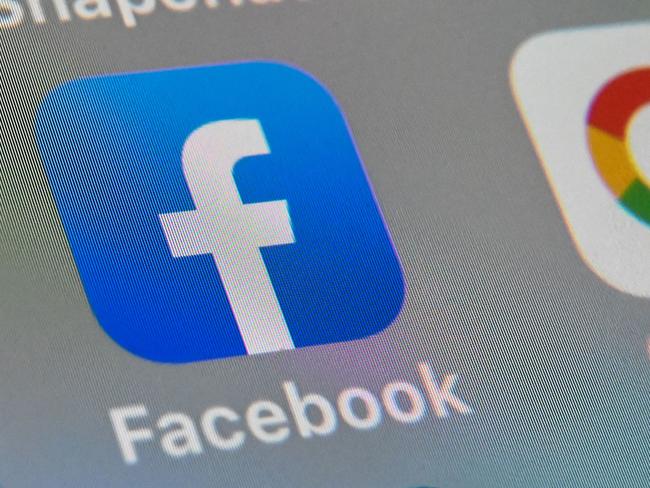
With the federal government’s news media bargaining code — which is designed to support a diverse and financially sustainable Australian news media sector — due to be voted on in the Senate next month, representatives from Google, Facebook and senior media executives will front the hearing in Canberra today to make their final pitches to the panel of cross-party senators.
Google is up at 10am AEDT, followed by Facebook at 10.40am.
Check back here for the latest updates.

